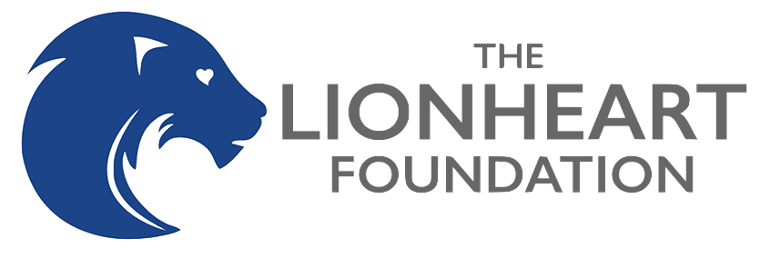What Is The National Solitary Project?
In 2016, The Lionheart Foundation received a major “Innovative Grant” from the California Department of Corrections and Rehabilitation (CDCR) to deliver the Houses of Healing Self-study Program to individuals housed in CDCR Special Housing Units (SHUs). More than 500 men participated over a 2-year period. The program evaluations provided invaluable feedback and spoke to the positive, and often life-transforming, impact of the program for many participants.
As a result of its exceptional impact, Lionheart decided to make the Houses of Healing Self-study Program available, for free, to people in highly restricted housing units nationally. Toward this end, The Lionheart Foundation launched The National Solitary Project.
Lionheart is partnering with state and federal prisons throughout the U.S. to make this acclaimed, evidence-informed program available to incarcerated individuals who are in highly restricted housing units (equivalent to solitary confinement). Lionheart is, for a limited time, providing the program at no cost.
What Is the Houses of Healing Self-study Program?
The Houses of Healing Self-study Program consists of the book, Houses of Healing: A Prisoner’s Guide to Inner Power and Freedom and the accompanying Making Time Count (MTC) workbook. The workbook walks participants, step-by-step, through the Houses of Healing Program. It is for anyone with a modest reading level (6th grade), a pen or pencil, and a willingness to engage in rehabilitative programming. While MTC can be used by most anyone in prison, including in group programs in the general population, this free offer is for highly restricted housing only.
Who Can Participate in The National Solitary Project?
Lionheart will be distributing the Houses of Healing / Making Time Count resources to individuals in solitary confinement. To ensure we can reach a significant number of people in solitary, for a limited time Lionheart is providing this program at no cost to prisons that meet the following criteria:
- Only those in solitary units are eligible to participate (single bed / locked in 22-24 hrs/day with little to no access to other programming). It is important to note that this program is NOT for individuals with severe mental health issues.
- Each institution will need to identify a contact person at the prison (i.e. program personnel, chaplaincy, mental health, or other staff) who will be responsible for distributing a program announcement and registration form to those in solitary in order to recruit participants. Lionheart will provide a file with these forms. The only out-of-pocket cost to the institution is to photocopy and distribute these 2 pieces of paper. The contact person will also be responsible for receiving the program packets from Lionheart and distributing them to registered program participants.
- Lionheart requests that the 1-page registration form be scanned directly to The Lionheart Foundation by the staff person who is supporting the initiative. Program packets (with book, workbook, introductory letter, program evaluation and bookmarks) will be mailed directly to the prison contact person.
- As noted, Lionheart will provide an evaluation (to gauge the level of participation and effort) that the participant mails back to Lionheart (in a pre-metered envelope) at the end of the course if s/he wishes to receive a “Certificate of Completion”. (Lionheart provides this certificate if s/he demonstrates a sincere effort.) We make it clear to prospective participants that Making Time Count is a self-study program NOT a correspondence course.
Because the Making Time Count Self-study Program requires significant time and effort on the part of the participant, to demonstrate effortful participation we encourage that the institution/prison system provides its own incentivization to promote program engagement and completion.
Example: the California Department of Corrections and Rehabilitation (CDCR). Once participants in the SHU have returned the evaluation and assignments demonstrating a sincere effort, Lionheart sends a “Certificate of Completion,” a congratulatory letter directly from The Lionheart Foundation, and a form created by the CDCR to the program liaison that is put in the participant’s prison/parole file.
How Can We Get Involved?
Become a Participating Institution
Lionheart has a long history of overseeing programs in prisons and has designed this initiative to be a light lift for participating institutions. We look forward to working with you in this potentially life-transforming collaboration.
Donate to The National Solitary Project
It's easy to contribute to The National Solitary Project fundraiser, and your support is essential to our ability to provide life changing programming to individuals in restricted housing.
Overview of Lionheart’s History in Corrections

Over the past 28 years The Lionheart Foundation has distributed more than 180,000 copies of Houses of Healing to prison libraries and programs (70,000 donated). Although the book can be read on its own, it is also part of a larger curriculum which includes the Houses of Healing Facilitator’s Manual, the Houses of Healing Video Series, and, as of 2020, the Making Time Count workbook which is used in conjunction with the Houses of Healing book. In August 2023, Lionheart launched the 14-session Houses of Healing E-Learning Program for use on tablets which thousands of incarcerated learners now have access to.
Research findings (The American Journal of Forensic Psychology and The American Journal of Forensic Psychiatry) and hundreds of program evaluations and unsolicited testimonies from incarcerated men and women speak to its life-changing impact.
